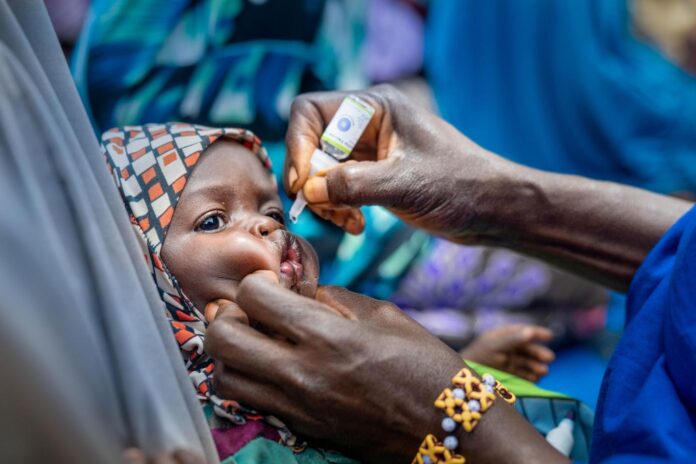To hasten the eradication of poliomyelitis, the United Nations International Children’s Emergency Fund (UNICEF) has donated the “Polio Emergency Operation Centre” to the Kebbi state government.
Aside from the centre donated to the Kebbi State Primary Health Care Development Agency, UNICEF also donated four Hilux vehicles to the health agency, according to the News Agency of Nigeria (NAN).
The centre is fully furnished with the necessary facilities to ease communication and pave the way for the eradication of the disease from the state.
In a speech at the inauguration of the facilities in Birnin Kebbi, Governor Nasir Idris applauded UNICEF for the gesture and promised to ensure its proper utilisation.
Represented by the Head of Service, Safiyanu Garba-Bena, the governor said that the essence of the gesture was to assist Kebbi in fighting and eradicating polio.
“What I saw in the edifice baffles me, the facilities put in place are fantastic. We are giving our development partners the assurances that the edifice will work very well,” Mr Idris said.
He also promised that the vehicles would be properly maintained, adding that trackers would be installed in them to monitor their movements to ensure that they were specifically used for the purpose they were intended.
The representative of UNICEF, Christiana Munduate, said the main aim of the gesture was to save the lives of children by reducing the number of polio cases in the state.
Mrs Munduate urged the state government to ensure judicious utilisation of the donated items, saying that the objective of the gesture was to ensure total eradication of the disease from Nigeria by 2024.
Earlier, the Executive Director, National Primary Health Care Development Agency (NPHCDA), Muyi Aina, identified “sector-wide approach” as one of the ways to implement health programmes in the country, championed by coordinating Minister of Health and Social Welfare, Muhammad Ali-Pate.
“The minister will ensure that everything we do as partners and government at multiple levels – the national, state and local governments – are coordinated and all moving in the same direction.
“This is a platform to be able to do that,” he said. He added that the edifice would be managed by the donors for several months and urged the state government to “identify key staff and we will understudy them.”
Mr Aina advised the state government to appoint a technical manager, who must be a competent person, a leader, somebody who understands better, understands immunisation and who would also galvanise the partnership.



